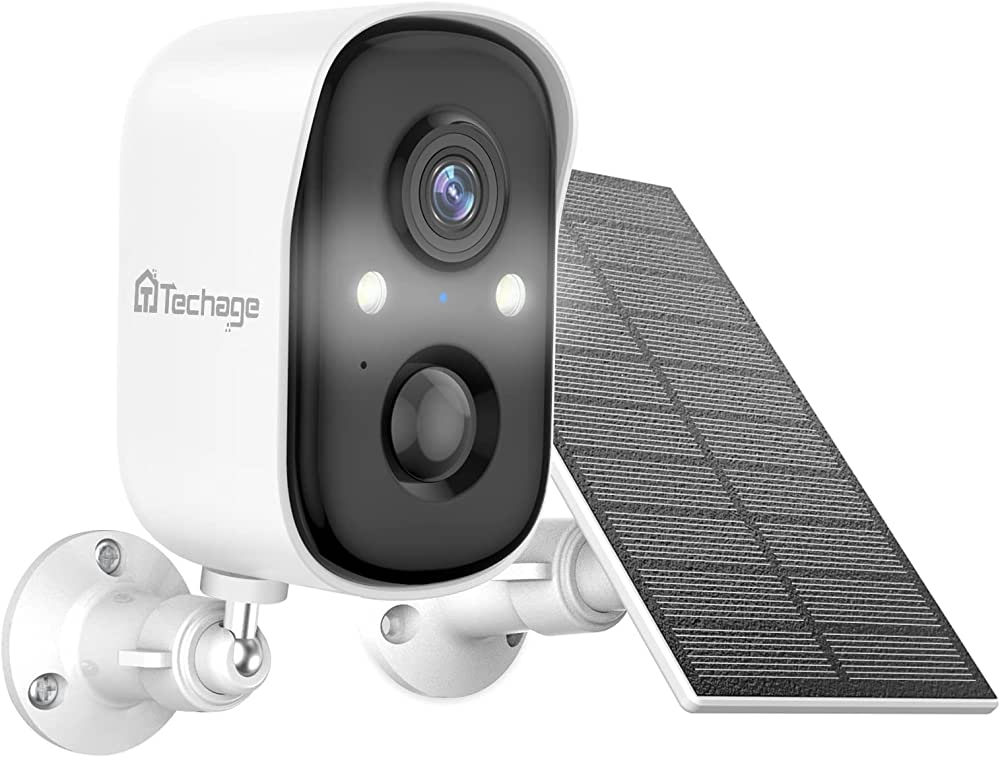Solar Powered Security Cameras

Solar powered security cameras can be placed in remote areas where it is impractical or expensive to provide a wired power source. They also offer smartphone alerts and allow for remote monitoring.
These cameras work independently from the grid and can function even during cloudy, gray days. Most of these cameras also include rechargeable batteries.
They are easy to install
A solar security camera requires direct sunlight to recharge its batteries. You need to find a spot with access to at least three hours of direct sun daily, but the best location is a south-facing wall or atop an area where the camera can capture the view you want without obstructions. Make sure the camera is protected from rain or snow.
The camera should have a backup power unit to keep the recording going in case of consecutive cloudy days. You also need to check if the device is compatible with your home Wi-Fi, smart home network, or 4G service provider.
The best option for a solar powered security camera is to purchase one that is fully integrated and comes with a built-in solar panel, battery, controller, and cables. Most models are not designed to be opened up, and doing so may void your warranty. You should also consider the wattage of the solar panel paired with the camera to determine how much energy it will generate.
They are affordable
Solar security cameras are an excellent option for remote, off-grid locations. They do not require hard-wiring and draw power from solar panels (bundled or sold separately). These devices also offer more flexibility than wired cameras and are an ideal solution for rural areas where electrical connections are often unreliable.
When choosing a solar-powered camera, consider the resolution and field of view. You will also want to check the motion sensor and whether the camera can be viewed remotely or via smartphone alerts.
If you choose a solar-powered security camera, make sure it has an internal battery for backup in case the solar panel fails. You should also pay attention to the wattage of the solar panel to determine how much energy it can generate from sunlight. A higher wattage means that the solar panel will charge the battery more quickly and provide more power to the camera. A battery with a larger capacity will also last longer.
They are reliable
Unlike traditional wired security cameras, solar-powered models do not require electricity and are reliable enough to function at any time. They can also capture video footage for future reference. This makes them an ideal choice for construction sites, national parks, farms and properties located in remote areas.
Most solar power security cameras are equipped with rechargeable batteries that store energy from the sun throughout the day. These batteries can keep the camera working at night and even through consecutive gray sunless days. However, you should note that many cameras are not designed to be opened for easy access to the battery. If you try to open the camera and replace the native battery, your warranty may be voided.
In addition, some solar power security cameras have an internal back up power unit that allows you to connect to a 3G or 4G network and monitor your property remotely. These systems are highly scalable and can be easily installed on construction projects or remote locations without the need for expensive security guards or equipment.
They are eco-friendly
Solar powered security cameras are an eco-friendly alternative to conventional security systems. They require no electricity from a power outlet and can use back-up batteries to stay operational during darkness or cloudy days. They also provide remote monitoring and can send notifications to staff when conditions such as intruders are detected.
These camera systems are ideal for large properties, such as a home, farm, boat dock, or jobsite. They can be installed anywhere with a WiFi or 4G network, and are not limited by wired connections like other wireless cameras. They can also be used in remote locations, such as vacation homes or Airbnb rentals.
To keep your solar security camera running, it requires a sunny location with direct sunlight for at least six hours daily. The solar panel should not be shaded by trees, shrubs, utility poles, or structures that block the sun. Make sure the camera is in a south-facing position for maximum year-round solar exposure.